
Lit Hub's Most Anticipated Books of 2020
A Look Ahead at the Year in Reading
AND BEYOND
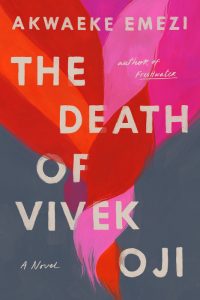 Akwaeke Emezi, The Death of Vivek Oji
Akwaeke Emezi, The Death of Vivek Oji
Riverhead, August 4
Awkaeke Emezi is one of the most daring, blazingly imaginative young writers at work today. Their debut novel, Freshwater, was a coming-of-age tale of a girl of Igbo ethnicity born with multiple selves, each under the domain of a different ogbanje, dark spirits of the Igbo belief system, was a breath of fresh air when it was released in early 2018. Their new novel, a Nigeria-set mystery, begins with a mother opening her front door to discover her son’s body, wrapped in colorful fabric, at her feet. We then follow this mysterious, somewhat unknowable child, Vivek, through childhood, adolescence and adulthood as he navigates his disorienting blackouts, an emotionally distant father, and a close bond with his cousin, all leading up to “a heart-stopping act of violence in a moment of exhilarating freedom.” –Dan Sheehan, Book Marks Editor
 Edward O. Wilson, Tales from the Ant World
Edward O. Wilson, Tales from the Ant World
Liveright, August 4
“Ants are the most warlike of all animals, with colony pitted against colony. . . . Their clashes dwarf Waterloo and Gettysburg.” Sorry, but what else do you want from a book? (There’s a reason Achilles’s soldiers were called Myrmidons aka, ants). Legendary biologist Edward O. Wilson takes a grand tour of the world’s great ant colonies, from Mozambique to New Guinea to the backyards of Alabama. Again, what else do you want from a book? It’s right there in the title, people. –Jonny Diamond, Lit Hub Editor in Chief
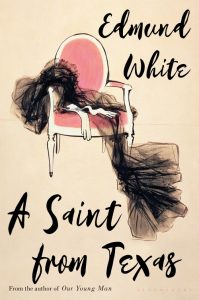 Edmund White, A Saint From Texas
Edmund White, A Saint From Texas
Bloomsbury, August 4
A new novel from decorated writer and social critic Edmund White—who turned 80 years old this month—is always cause for celebration. This one follows two Texas sisters, Yvette and Yvonne, who will take two very different paths: one into the highest Parisian social classes, the other into the church. Anne Beattie called it “a brilliantly observed story about how we find ourselves by losing ourselves, about family bonds and how the harm done to us can warp us into something new.” –Emily Temple, Lit Hub Senior Editor
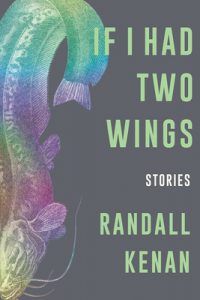 Randall Kenan, If I Had Two Wings
Randall Kenan, If I Had Two Wings
Norton, August 4
Randall Kenan has taken a nearly 30-year break from publishing short fiction. Let the Dead Bury the Dead, his linked 1992 collection, unfolded the tales of real life Tims Creek, a corner of North Carolina that one of its residents explains in the book was founded as a “maroon society,” a place so off the beaten path no one would disturb the runaway slaves who settled there. Supernatural and odd, full of the living dead and fairy tales that will raise your hair, the book took southern gothic and exploded it on the spot. For almost 30 years Kenan worked in nonfiction, rewriting The Fire This Time, traveling the US, from Alaska to Maine, collecting oral histories of African Americans. Now Kenan has returned to Tims Creek and more tales to tell. They involve a man at a nursing home, a rich man haunted by a pig, and a woman in the last years of her life who turns into a miracle worker. What a joy it is to have Kenan back in the teller’s seat. –John Freeman, Lit Hub Executive Editor
 J. Courtney Sullivan, Friends and Strangers
J. Courtney Sullivan, Friends and Strangers
Knopf, June 23
I am an absolute sucker for books about complicated female friendships, so this one, which tells the story of a desultory Brooklyn transplant to a small-town who befriends her infant’s young babysitter, is right up my alley. As their friendship develops, the younger woman grows closer to the older’s father-in-law, which causes a rift between them. Then: betrayal! That is a maddening tease, and one which has absolutely hooked me. –Jessie Gaynor, Social Media Editor
 Pankaj Mishra, Bland Fanatics
Pankaj Mishra, Bland Fanatics
FSG, August 4
Pankaj Mishra is out there doing the thankless work of dealing with people like Jordan Peterson—who we’d all just rather ignore—combatting a thousand tossed-off pseudo-centrist op-eds with vibrant, rigorous prose. This is a massive industry, now, these intellectual underlaborers of empire in decline, toiling in the mephitic depths of YouTube in hopes of graduating to Fox or the conference circuit; and though the lion’s share of their “ideas” are based in hysterical pseudoscience and racist nostalgia, these ideological farts have begun surfacing in actual American policy. We should be grateful for Mishra, hydra-slayer, and I only hope he has the endurance for many more essay collections to come. –Jonny Diamond, Lit Hub Editor in Chief
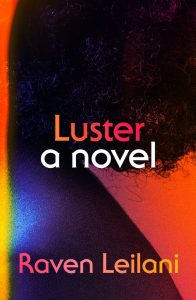 Raven Leilani, Luster
Raven Leilani, Luster
FSG, August 4
I’m really excited for this debut novel, in which a young black woman, an aspiring painter living in New York City, finds herself enmeshed in the open marriage of a white family in New Jersey, and the confidante of their adopted daughter, Akila, who is desperately in need of role models who look like her. By all accounts, the voice is sharp and witty and fresh, which makes it a book for me. –Emily Temple, Lit Hub Senior Editor
 Darin Strauss, The Queen of Tuesday
Darin Strauss, The Queen of Tuesday
Random House, August 15
This extraordinary double biography tells the story of Strauss’ grandfather and of Lucille Ball, both of whom were at a party hosted by Fred Trump in New York on 1949. It was the kind of party that shows you from where Donald Trump got his media sense. That night Fred Trump hosted a giant bash at the Pavillon of Fun, a grand, architecturally significant pavilion in Steeplechase Park in Coney Island. Trump had bought the place and planned to demolish it, and already there was push back on the flagrant destruction of a landmark. So the party was throw to coax as much society as possible into the building. Then, at the stroke of midnight, they would be given bricks and told to smash through the glass ceiling. They did, it was a hit, and that Trump got his way.
Strauss sees this as the apotheosis of a time, of which we’re seeing a new kind of moment now. Moving between his grandfather and Lucille Ball, he paints a dual portrait, of people made by will, seemingly charmed. And in a final section, entirely fictional, he imagines them having an affair together. Both are dead, have long since been dead, and there’s very little here to harm anyone, including Strauss’ father, who told him, go ahead, write the story. In this fantastic period piece about a people and a time who had the power to imagine everything, going the moon, even. Strauss seems to be asking: did they imagine the best things? The most tender or unlikely? This book moves like a metaphysical cover of a Frank Sinatra song, full of familiar brassy sounds, but it leaves a mournful afterglow. –John Freeman, Lit Hub Executive Editor
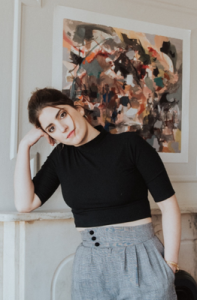 Suleika Jaouad, Between Two Kingdoms
Suleika Jaouad, Between Two Kingdoms
Random House, August 18
You may already be familiar with Suleika Jaouad and her story—diagnosed with cancer at age 22—from her New York Times column, “Life, Interrupted,” which she began writing at the bone marrow transplant unit at Memorial Sloan-Kettering Cancer Center. But whether you already know about her or not, you’ll want to be on the lookout for her first memoir, which is indeed about her four-year battle with cancer—but also about the battle of re-entering a world she had thought was lost to her forever. –Emily Temple, Lit Hub Senior Editor
 Nick Flynn, This is the Night Our House Will Catch Fire
Nick Flynn, This is the Night Our House Will Catch Fire
Norton, August 25
I really can’t decide whether I like Nick Flynn’s poetry or his memoirs better; luckily, we don’t have to choose. The author of Another Bullshit Night in Suck City‘s latest memoir investigates his own tumultuous childhood—including the time his mother set fire to their house—and looks at its reverberations into his current life as a parent. Flynn is a ferocious and fascinating writer, and I can’t wait to dig into his latest. –Emily Temple, Lit Hub Senior Editor
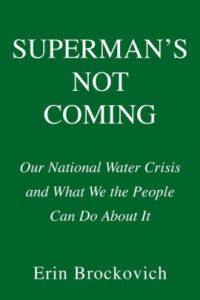 Erin Brockovich, Superman’s Not Coming
Erin Brockovich, Superman’s Not Coming
Pantheon, August 25
Many of us are already familiar with environmental activist Erin Brockovich’s story from the award-winning film that portrayed her work in Hinkley, California, where she helped residents win a case against Pacific Gas and Electric after the company’s irresponsible disposal of carcinogens affected the town’s groundwater. The title of her newest book, Superman’s Not Coming, reflects an attitude Brockovich has long brought to her activist work as she has urged residents to educate and advocate for themselves in the face of environmental degradation. The book looks at communities that have done just that, from upstate New York to Missouri and beyond, in a collection of stories that testify to the ingenuity of residents fighting for the right to access clean, safe water. –Corinne Segal, Lit Hub Senior Editor
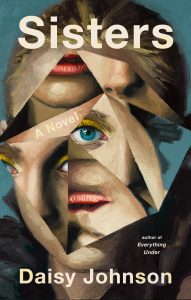 Daisy Johnson, Sisters
Daisy Johnson, Sisters
Riverhead, August 25
In 2018, Daisy Johnson became the youngest ever writer to be shortlisted for the prestigious Booker Prize—for her debut novel, no less. Everything Under announced her as a major talent, and so I’m very much looking forward to her sophomore effort, in which a pair of close sisters move across the country with their mother, into a strange and creepy house, and soon begin to come apart at the seams. –Emily Temple, Lit Hub Senior Editor
 Alex Ross, Wagnerism: Art and Politics in the Shadow of Music
Alex Ross, Wagnerism: Art and Politics in the Shadow of Music
FSG, September 1
It’s been over a decade since Alex Ross’s now definitive study of classic music came out, and this new book, apparently all that time in the making and more, will be his definitive book, a study of music and its relationship to politics and cruelty as told through the story of Wagner. –John Freeman, Lit Hub Executive Editor
 Evie Wyld, The Bass Rock
Evie Wyld, The Bass Rock
Pantheon, September 1
The new novel from the author of All the Birds Singing intertwines the life of three women, decades apart, whom men seek to control on the Scottish coast. Max Porter called it “a multi-generational modern gothic triumph. It is spectacularly well-observed, profoundly disquieting, and utterly riveting. Like all Evie Wyld’s work it is startlingly insightful about psychological and physical abuse. It is a haunting, masterful novel.” Another one I can’t wait to read. –Emily Temple, Lit Hub Senior Editor
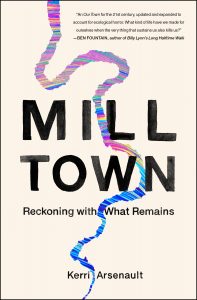 Kerri Arsenault, Mill Town
Kerri Arsenault, Mill Town
St. Martin’s, September 1
Kerri Arsenault grew up in a small town in rural Maine next to a mill which employed her father, her ancestors, and most of the people in the surrounding area. In time, the dioxins it pumped into the river running through the area would kill many people dependent on the mill, including her father. And yet, many people in town believed in the mill, they adored it, they fought its sale, and then they have worried about its departure. Why did they stay? How could they go? This profoundly important book reports on the way so many parts of America are killing the people who love them. Tender, angry, full of respect and bewilderment, it is a complex love letter to a hometown. It’s also a powerful glimpse of how corporate power, small town pride, and death are entwined in America: a vivid insight to the unbuilding of an American dream. With blurbs form Richard Russo and others, this will be one of the major nonfiction books of a year in which the debate over what America is will rage. –John Freeman, Lit Hub Executive Editor
 Emma Cline, Daddy
Emma Cline, Daddy
Random House, September 1
As previously reported, we are at long last getting another book from wunderkind Emma Cline. The first short story collection from the Plimpton Prize-winning author of The Girls is sure to be incredible—or at least I personally think Cline’s stories are even better than her bestselling, much-hyped novel. Read “Marion” for a little preview of this one. –Emily Temple, Lit Hub Senior Editor
 David Karashima, Who We’re Reading When We’re Reading Murakami
David Karashima, Who We’re Reading When We’re Reading Murakami
Soft Skull, September 1
Karashima, a Japanese novelist and translator, has conducted a profound riff on the art of translation in considering the work of Haruki Murakami, and how it differs in English from its original publications in Japanese. Tracking the work of the major Murakami translators who have rendered his work into English, this book shows the way it is shaped, edited, and reformed by who is working on it. Like William H. Gass’s book, Reading Rilke, this will probably become a must read for translators and fans of Murakami alike. –John Freeman, Lit Hub Executive Editor
 Hari Kunzru, Red Pill
Hari Kunzru, Red Pill
Knopf, September 1
Hari Kunzru is writing a color trilogy, of which this is volume two, set in the Berlin suburb of Wannsee, featuring a writer on fellowship in the moody present tense. The work is not going well, so at night he binge watches a violent cop drama called Blue Lives, mesmerized by its hollowed out, Darwinian view of human nature. Or he goes for very long walks. Across the lake from where the narrator stays looms the building where the Nazis planned the Final Solution. One night, he is dragged out to a club by friends and meets Anton, the creator of Blue Lives. Bit by bit, the narrator begins to wonder if Anton is red-pilling the fans of Blue Lives, working them up into a froth of anti-social violence. Kunzru is one of our most media savvy novelists, his antennae so finely tuned to the way messaging has been awry for some time now that this book arrives less as a warning, but rather a note to how we got here. –John Freeman, Lit Hub Executive Editor

Ayad Akhtar, Homeland Elegies
Little, Brown, September 8
In Ayad Akhtar’s second novel, after 2012’s American Dervish, the Pulitzer Prize-winning screenwriter delves again into the Pakistani-American experience. His publisher calls the book “an astonishing and deeply personal work about hope and identity in a nation coming apart at the seams. Drawn from Akhtar’s life as the son of Muslim immigrants, Homeland Elegies blends fact and fiction to tell an epic story of belonging and dispossession in the world that 9/11 made. Part family drama, part social essay, part confessional, part picaresque adventure, readers will encounter a darkly comic and wildly ambitious portrait of the late-stage American Dream.” I’m eagerly awaiting this new offering from one of the greats. –Emily Temple, Lit Hub Senior Editor
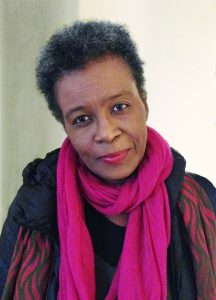 Claudia Rankine, Just Us: An American Conversation
Claudia Rankine, Just Us: An American Conversation
Graywolf, September 8
As you may have noticed, we fully and aggressively stan MacArthur Genius Grantee Claudia Rankine here at Literary Hub (I mean, who doesn’t), and none of us can wait to get our hands on her latest essay collection, about which we have very little information except that, like Citizen, it will use both text and visuals to explore race—in this case focusing on whiteness. Or as the publisher puts it “white privilege, well-meaning liberal politics, white male aggression, the implications of blondness, white supremacy in the White House, the Brett Kavanaugh hearings, and the alarming move toward Brexit.” Any book from Rankine is sure to be an essential addition to our cultural conversation; hopefully this will be a little bit of light in what’s shaping up to be a terrifying fall. –Emily Temple, Lit Hub Senior Editor
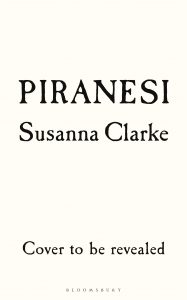 Susanna Clarke, Piranesi
Susanna Clarke, Piranesi
Bloomsbury, September 15
As previously reported in this space, 15 years after her boundary-breaking and widely beloved debut, Jonathan Strange and Mr. Norrell, Susanna Clarke is back. Piranesi is set in a new kind of dreamlike labyrinth: a strange, irreal house with infinite rooms and infinite statues and an ocean trapped within; the eponymous Piranesi lives there with The Other, and the two research A Great and Secret Knowledge. But what is beyond the infinite house? Absurd that we must wait until September to find out. –Emily Temple, Lit Hub Senior Editor
 Christopher Paolini, To Sleep in a Sea of Stars
Christopher Paolini, To Sleep in a Sea of Stars
Tor, September 15
The bestselling author of the Inheritance Cycle has a new book coming in September, which he describes as “a massive science-fiction space opera, full of spaceships, lasers, aliens, explosions, and of course. . . tentacles.” Peggy Olson would approve. “More seriously,” he writes, “I really wanted to capture the sense of wonder I feel when looking up at the stars at night—as well as the sense of optimism I feel when imagining humanity’s future as we expand into space. I’ve spent over seven years working on this book—figuring out the science, the characters, and most importantly, the story—and I can’t wait for you to read it.” By September, I think we’ll be in dire need of some honest-to-goodness wonder. –Emily Temple, Lit Hub Senior Editor
 Dan Chiasson, The Math Campers
Dan Chiasson, The Math Campers
Knopf, September 22
From the poet and New Yorker critic comes a new collection that unpacks both the methods of artistic creation—showing us how poems are formed, and how they evolve—and in the methods of human creation, as Chiasson, the father of teenage boys, reflects of their passage through the years and through the world. –Emily Temple, Lit Hub Senior Editor
 Rumaan Alam, Leave the World Behind
Rumaan Alam, Leave the World Behind
Ecco, October 6
I know nothing at all about this novel, except that Alam himself described it on Twitter as “part horror novel part racial farce and about the relationship between garden variety parental anxiety and climate change anxiety it’s really funny and almost killed me.” To which I say: sold. –Emily Temple, Lit Hub Senior Editor
 Sayaka Murata, Earthlings
Sayaka Murata, Earthlings
Grove, October
Sayaka Murata’s new novel Earthlings takes the mood of colorful disquiet she honed in Convenience Store Woman and pushes it further out. The boy and a girl at the heart of her latest believe they have landed on earth from outer space. Raised by separate families, treated badly, they tack toward each other in this immensely charming, strange and heart-stomping tale. The imagination of this writer grows and grows like outer space. Earthlings should be one of the main fictional events of 2020. –John Freeman, Lit Hub Executive Editor












